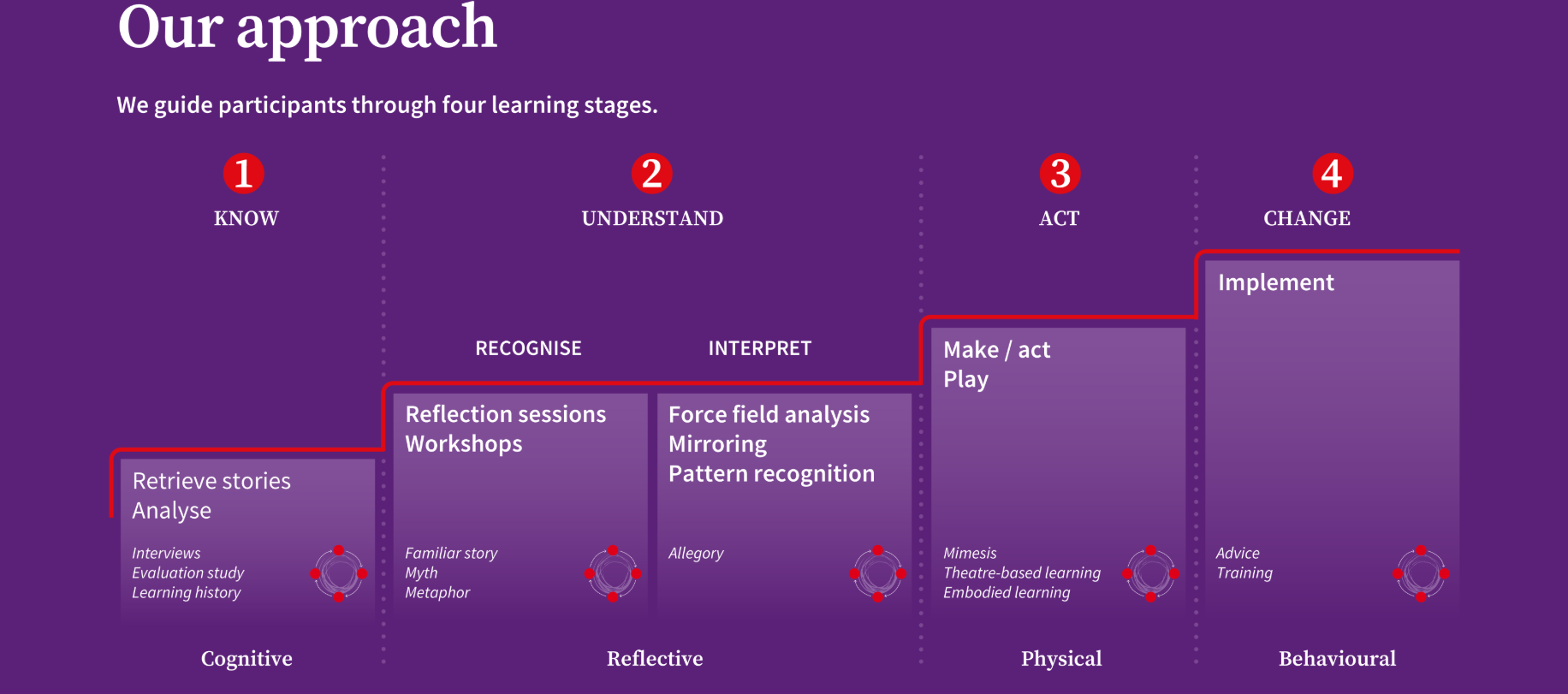To achieve that goal, Learning Stage opts for a pragmatic approach: the Learning Stage model.
We provide tailored solutions for every need. We guide participants through four learning stages:

A continuous cyclical process connects the four phases (know, understand, act and change) in a powerful feedback loop. Each phase reinforces the next.
Practical application leads to:
